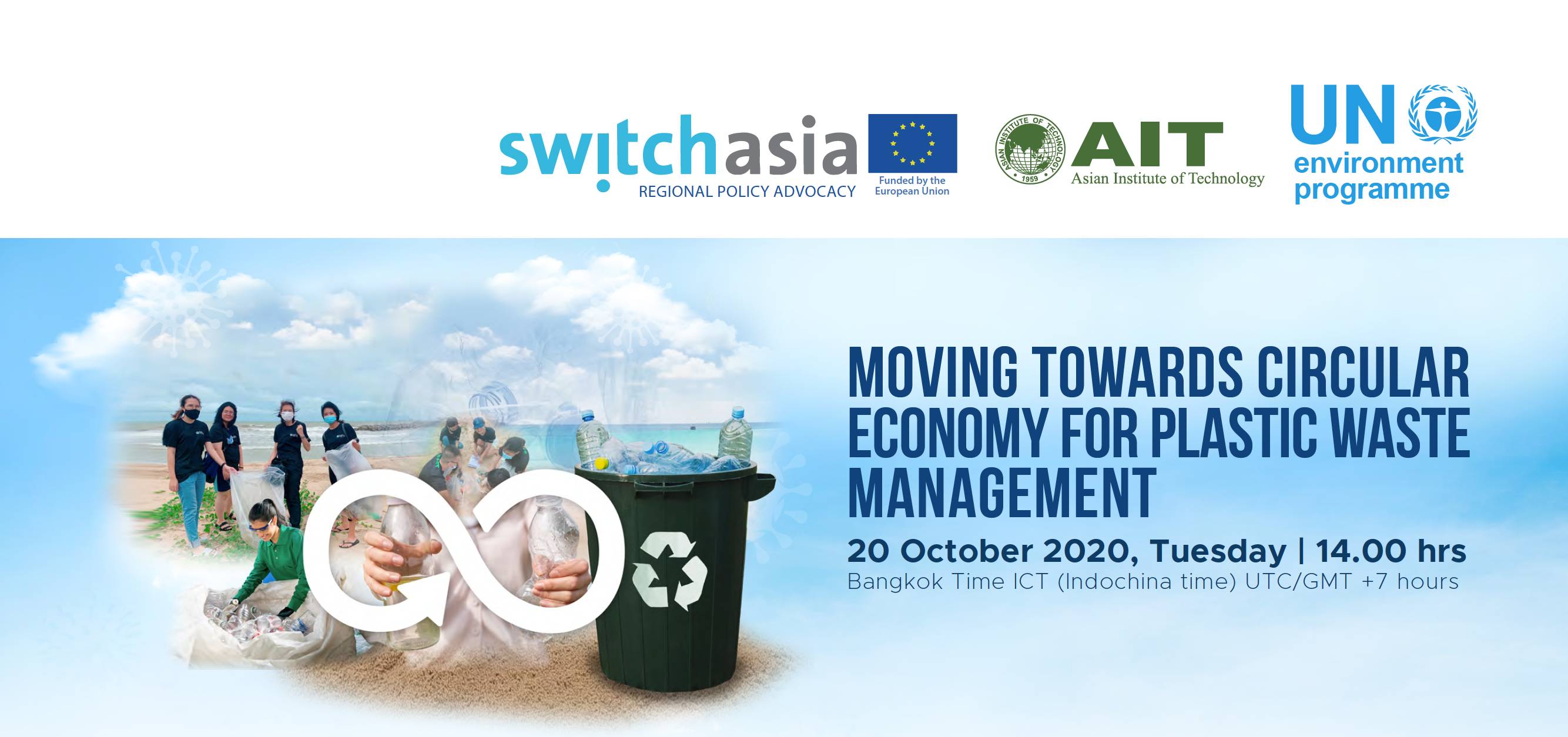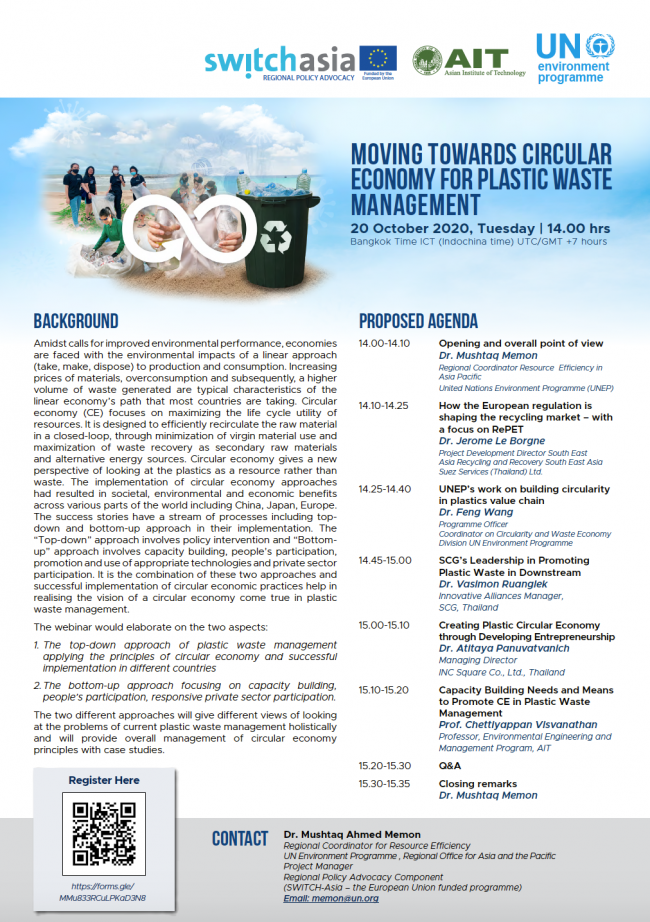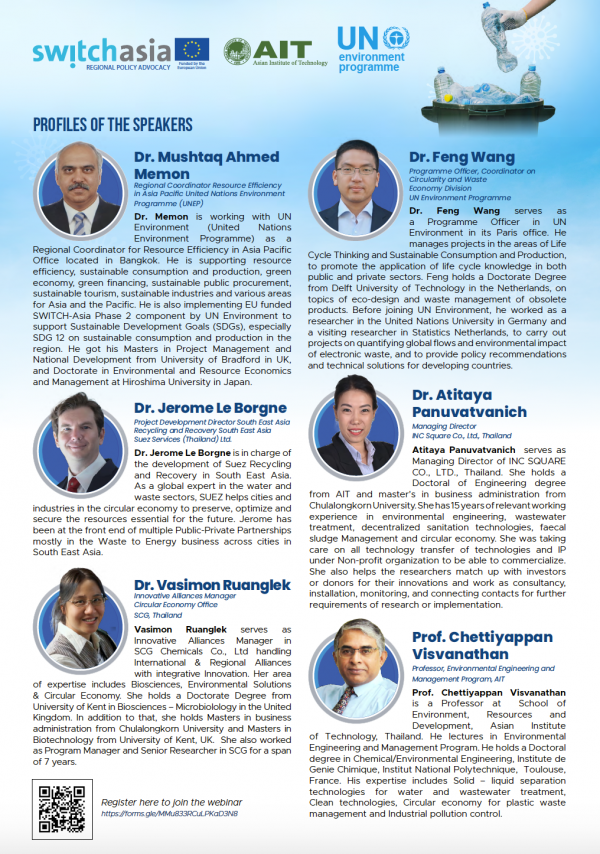
WHEN: 20 October 2020, Tuesday TIME: 14:00 hrs (Bangkok Time) REGISTRATION: Link
Background & Objectives
Amidst calls for improved environmental performance, economies are faced with the environmental impacts of a linear approach (take, make, dispose) to production and consumption. Increasing prices of materials, overconsumption and subsequently, a higher volume of waste generated are typical characteristics of the linear economy’s path that most countries are taking. Circular economy (CE) focuses on maximizing the life cycle utility of resources. It is designed to efficiently recirculate the raw material in a closed-loop, through minimization of virgin material use and maximization of waste recovery as secondary raw materials and alternative energy sources. Circular economy gives a new perspective of looking at the plastics as a resource rather than waste. The implementation of circular economy approaches had resulted in societal, environmental and economic benefits across various parts of the world including China, Japan, Europe. The success stories have a stream of processes including top- down and bottom-up approach in their implementation. The “Top-down” approach involves policy intervention and “Bottom- up” approach involves capacity building, people’s participation, promotion and use of appropriate technologies and private sector participation. It is the combination of these two approaches and successful implementation of circular economic practices help in realising the vision of a circular economy come true in plastic waste management.
The webinar will elaborate on the two aspects:
- The top-down approach of plastic waste management applying the principles of circular economy and successful
implementation in different countries - The bottom-up approach focusing on capacity building, people’s participation, responsive private sector participation.
The two different approaches will give different views of looking at the problems of current plastic waste management holistically and will provide overall management of circular economy principles with case studies.
Target audience:
Professionals at national, sub-regional and regional level for supporting development of various policies and practices to implement circular economy in line with the national roadmaps which are being developed.


Contact:
Mushtaq Ahmed Memon
Regional Coordinator for Resource Efficiency
UN Environment Programme, Regional Office for Asia and the Pacific
Project Manager
Regional Policy Advocacy Component
(SWITCH-Asia – the European Union funded programme)
Email: [email protected]



